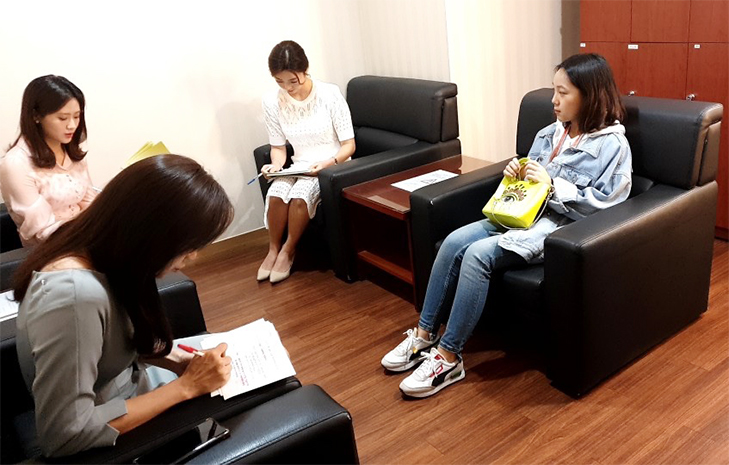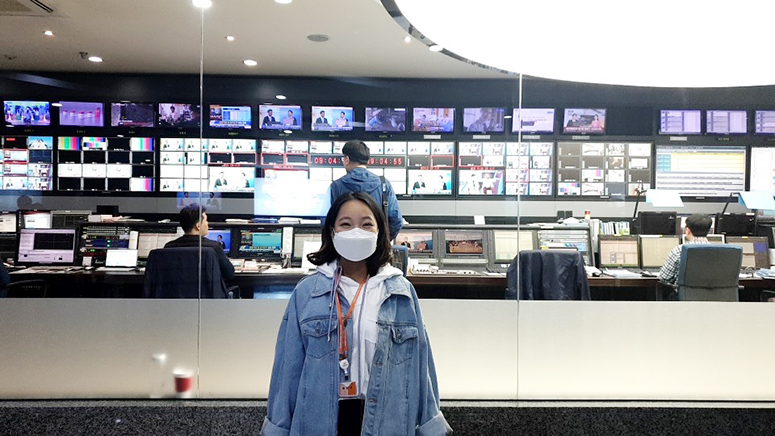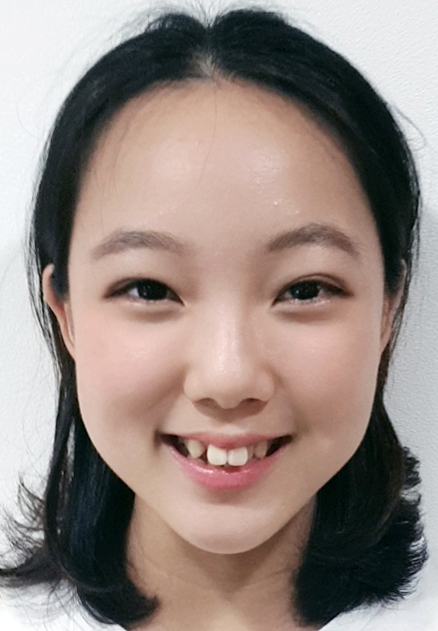Korea enjoys innumerable television show programs: K-drama, comedy, entertainment, and documentaries. Due to such a media culture, Korean celebrities from TV are always in the spotlight. We tend to appreciate the end-product, yet we do not acknowledge the people behind-the-scenes: those who play the most foundational role in materializing a program. That is why I decided to peer into the life of a documentary screenwriter, one of the most challenging in the media industry. What do they do, and what are their responsibilities or tasks?

Fortunately, I had a chance to meet with veteran documentary writer So Yeon Kim, who had worked for over nine years at KBS, a major broadcasting station in Korea, and is currently working as the main writer at MBN, another big broadcasting company. She listed the six duties of a screenwriter: topic research and investigation, casting, scheduling, content writing, rough-cut editing, and scriptwriting.
Kim always needs to investigate and research the items (jargon used in Korea media industry to refer to new ideas or subjects for a show). Such items are crucial, as without it, the show cannot go on. She stated that she searches for ideas constantly in her daily life. “It can be social media, books, TV, places, magazines, or even meetings,” she explained. This constant quest for items can be nerve racking as she sometimes has to procure an item on the fly. “Once, I had to think of an item within a day because of a setback in the schedule. It was crazy.”
After settling on an item, a writer casts people for the show, which mainly consists of staying on the phone the entire time. The writer calls the interviewees directly, or sometimes indirectly through their managers, to request their appearance on the show. If the interviewee turns it down, the writer usually keeps on his tail doggedly. It is not unusual for the writer to call the interviewee several times more to persuade him. Once the interviewee accepts and the casting is complete, writers must then schedule the filming sequence. After completing these preliminary works, the writer starts to write the script, the narration for the interviewee and the host in the documentary. The final step is rough cut editing, a process wherein the writer edits the script with input from the producer. Once everything is revised and perfected, the documentary is ready to go into production.

Before I met Kim, I had a preconceived notion that being a screenwriter would be arduous due to job instability and conflicts with the directors. However, So Yeon Kim was able to dispel my myths. In fact, the stability of a writer’s career depends first and foremost on his own ability as a writer. All screenwriters in Korea are freelancers, and the competition is fierce. This means that if they are not disciplined in time management or simply lazy, they cannot advance their careers. Conversely, if the screenwriters work diligently and try to work on more than one program, they can earn a very respectable living.
As to the directors, contrary to common misconception, they are generally very good about communicating with the screenwriter before editing. Although Korean dramas often depict a hostile relationship between a screenwriter and a director, this also is generally not true. They rarely disrespect the screenwriter by altering the original script. “The relationship between a director and a writer is really important. We may have conflicts and disagreements, but we deal with them professionally. In the end, the show is collaborative work,” Kim added.
When asked what makes a successful writer, Kim mentioned three key qualities: talent, tenacity, and goal. Talent refers to a writer’s competence. It seems to be more than just an innate talent to write. Kim says that although there are many writers, only a few have the insight to write viable screenplays that really fit the intended style of the programs.
Next, tenacity is crucial if one is to endure the hardships that entail. Kim stated, “the first step of becoming an author is not writing; it is cultivating patience to work on tasks other than writing.” She witnessed many instances in which writers quit their jobs due to a disparity between their ideals and reality. “Many writers come in thinking they will start writing and earning their reputations right away. But in reality, they must withstand the period of errands and chores, trivial things that they probably wouldn’t have imagined doing.” Such training can last from six months to two years, and one has to weather this apprenticeship.
Finally, any writer should have a firm goal. Merely dreaming of abstract ideas, thinking about working with grand celebrities or writing mind-blowing scripts, will never sustain a writer. One must have a more sharply focused goal--a respected writer, a documentary specialist, or perhaps a writer who can move the hearts of the audience. Only then can the writer truly enjoy his or her work and thrive in this business in the long run.

All these criteria for becoming a successful writer beg the question: ‘So how difficult is it to enter the world of screenwriters?’ Surprisingly, not so much. There is a big demand for writers everywhere, and they can work in either broadcasting companies or production companies. Within the industry, there are also a wide variety of program genres: entertainment, documentary, reality show, comedy, K-drama, and even radio. Once writers choose which genre they would like to commit to, they also have the option of choosing which channels they would like to work for--MBC, KBS, tvN, and JTBC, to name a few among many. Thus, as long as they know what their aspirations are, the doors to becoming a scriptwriter are wide open.
Although no job is easy and all jobs are meaningful, creative writing that entertains and moves the hearts of thousands of people truly seems like a very special occupation. As long as aspiring writers stand the test of time and continue to develop their talents, screenwriting has immense potential to be a marvelous profession for them.

Soo-A Hong
Sophomore (Grade 10)
Cebu International School

